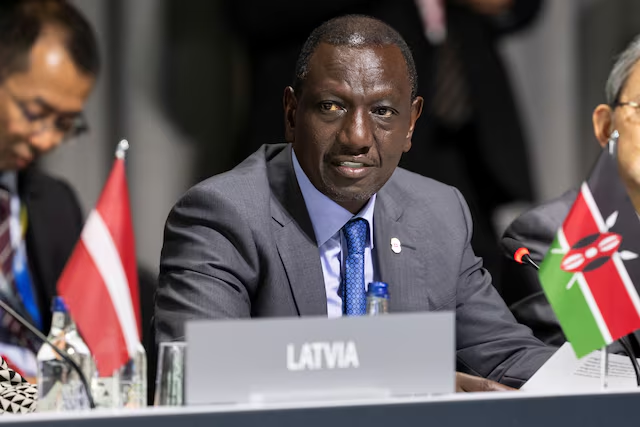Kenyan President Ruto Engages with IMF Chief Following Reversal of Tax Hikes Amid Protests
Kenyan President William Ruto held a phone conversation with International Monetary Fund (IMF) Chief Kristalina Georgieva after retracting $2.7 billion in proposed tax hikes, according to two diplomatic sources who spoke to Reuters.
The proposed tax increases were a key component of policy reforms that Kenya had agreed upon with the IMF as part of a $3.6 billion lending programme. Analysts predict that the withdrawal of the tax bill may jeopardize Kenya’s ability to meet key programme targets.
However, the immediate financial pressure on the government has lessened following the successful issuance of a new seven-year bond to repay an earlier $2 billion bond.
Young protesters have largely directed their anger at the IMF, accusing the institution of driving the tax hikes. The specifics of Ruto and Georgieva’s phone call remain undisclosed, but sources indicated that there is a consensus among major donors for the IMF to exhibit flexibility regarding programme targets. This flexibility would be contingent on Kenya’s commitment to reducing wasteful spending, tackling corruption, and enhancing accountability.
In early June, the IMF reached a staff-level agreement with Kenya on a policy package essential for completing the seventh review of the lending programme, which is expected to release several hundred million dollars. However, this agreement is still awaiting the IMF Executive Board’s approval.
An IMF spokesperson commented on the situation, stating, “We remain deeply concerned by the recent tragic events in Kenya and maintain close ongoing and constructive dialogue with the Kenyan authorities.” Ruto’s office has yet to respond to requests for comment.
Since the withdrawal of the tax bill, Ruto has promised to incorporate austerity measures in a supplemental budget, yet also indicated that increased borrowing will be necessary for the 2024/25 fiscal year. The IMF’s spokesperson reiterated the fund’s commitment to aiding Kenya in overcoming its economic challenges and improving the well-being of its people.
Financial expert Pavel Mamai, managing partner and portfolio manager at Promeritum Investment Management, stated, “I think the IMF will continue helping Kenya, but the disbursements are more likely to resume toward the end of this year. The IMF will basically ask Kenya to regroup and present a new reform plan.”
The protests, which have been ongoing since mid-June, have resulted in at least 39 fatalities according to a government-funded human rights organization. Although the withdrawal of the bill has led to a decrease in turnout, anti-government demonstrations continue.
Source: Reuters



